As President Joe Biden signed a law making Juneteenth a federal holiday, conservative commentator and author Candace Owens unleashed a slew of tweets criticizing those who support it, prompting backlash on social media. The most unexpected and perhaps most potent came from rapper Azealia Banks.
The backlash against Owens came after she accused Democrats of trying to “repackage segregation,” calling Juneteenth “soooo lame” and saying she’ll continue to celebrate July 4th only, adding “I’m American.”
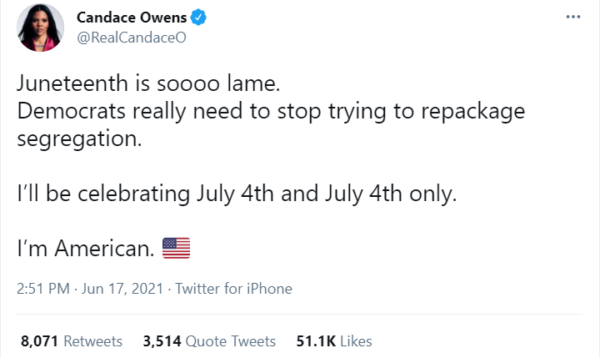
Although Owens attributed the establishment of Juneteenth as a holiday to Democrats, the Senate unanimously passed a resolution on Tuesday establishing June 19 as Juneteenth National Independence Day. Juneteenth gained increased support and recognition after George Floyd’s death last year.
Juneteenth, the longest-running Black holiday in the United States, is celebrated annually on June 19, and commemorates the end of slavery in Texas. When Confederate Gen. Robert E. Lee surrendered the Army of Northern Virginia on April 9, 1865, the Civil War was effectively over and the 1863 Emancipation Proclamation declaring the slaves in Confederate states free became enforceable. But in Texas many slaves remained in bondage until Union soldiers arrived at Galveston, Texas on June 19, 1965, and Union Major-General Gordon Granger proclaimed Emancipation Day.
Contrary to popular misconception, slavery persisted in the United States even after June 19, 1865, as the Emancipation Proclamation only applied to slave states that had joined the Confederacy. It wasn’t until the 13th Amendment took effect on Dec. 6, 1865, that African-Americans in bondage in states such as Kentucky and Delaware were legally freed.
But Owens was clearly unimpressed by the expanding recognition of the holiday.
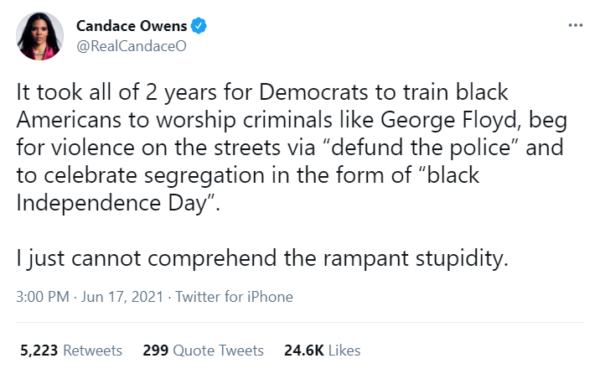
“Every single race has been enslaved at some point in human history,” she wrote. “This is not a holiday. This is more emotional training from Democrats to see ourselves as somehow separate from America.”
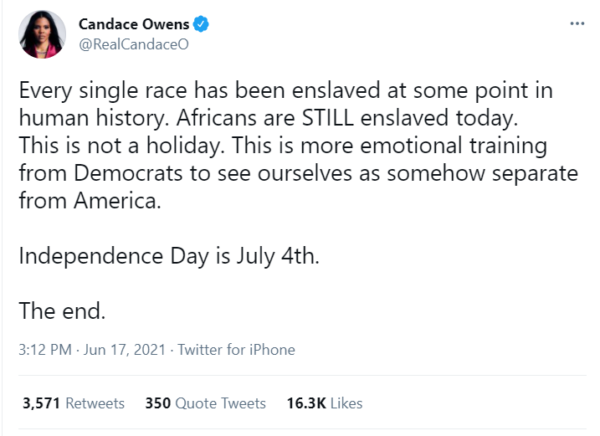
Banks issued a lengthy response the following day to Owens in a now-deleted Instagram post.
The “Liquorice” rapper began her post by reminding Owens of the harsh realities for Black people in 1776, “According to this logic, on July 4th 1776 you would still be enslaved, most likely on the verge of starvation due to all America’s food supply having been prioritized for the war, while you hand sew American flags and struggle to wet nurse some depressed 24year old white widows sickly child….”
She ended the post calling out Owens for being someone who would likely “proudly” live in the deplorable conditions during slavery, “Next your final descent down the stairs and out the back where you proudly sleep on a bed bug infested pile of hay in 6×4 cabin you share with 4 other slaves. Happy Independence Day.”
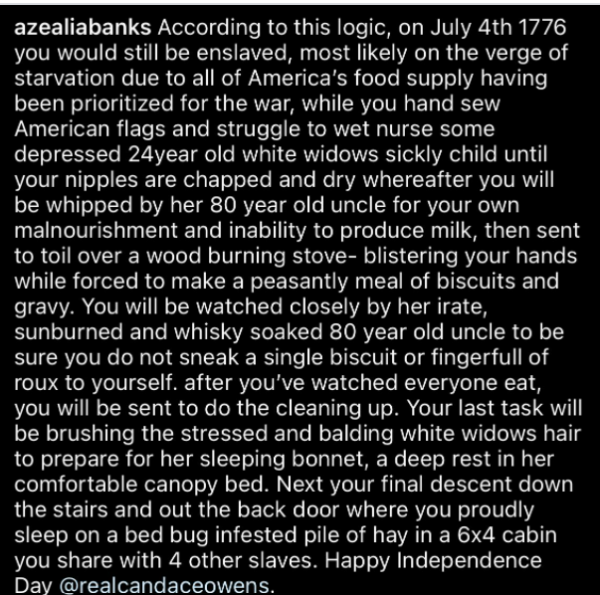
Banks didn’t end her take down there. In a series of Instagram stories, she added, “You’re really picking on old Black people [for] weird, white internet users, for their entertainment. Is that what it means to be a Black conservative? That’s not what it means to be a Black conservative, that you just poke fun at Black people. Bitch, that’s not it.”
Others around the web roundly criticized Owens, many with jokes about her racial identity. One user compared Owens to Uncle Ruckus, a character featured in “The Boondocks.”
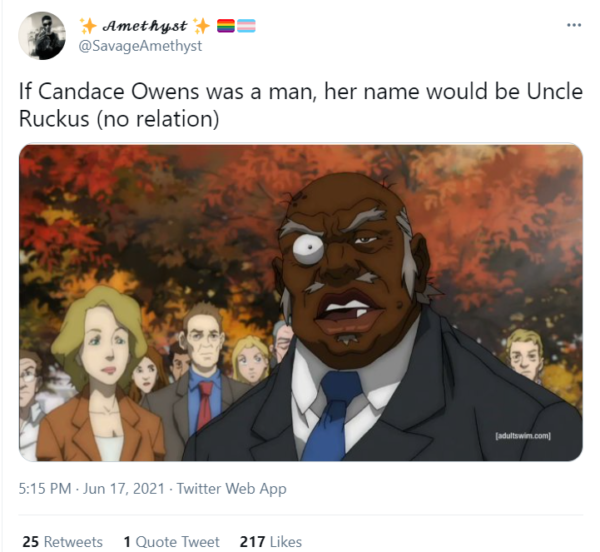
Bishop Talbert Swan joined in on “The Boondocks” jokes, asking, “Who’s going to tell Auntie Ruckus that Black people were enslaved, considered property, and had no rights on July 4, 1776 and that her in-laws neither considered them to be human nor American?”
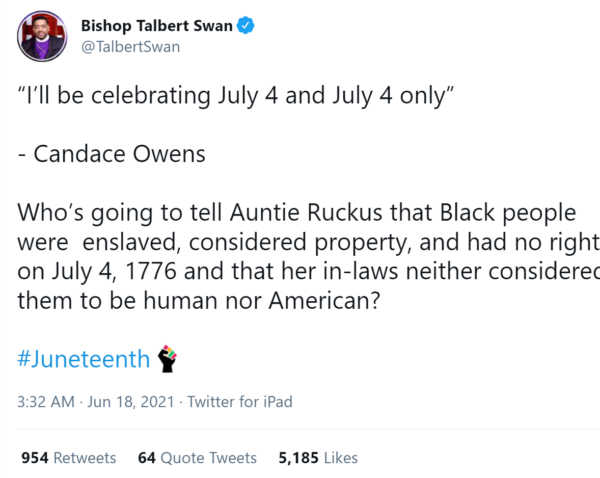
“This is who Candace Owens WANTS to be,” wrote another user who included an image of a woman with a swastika tattoo.
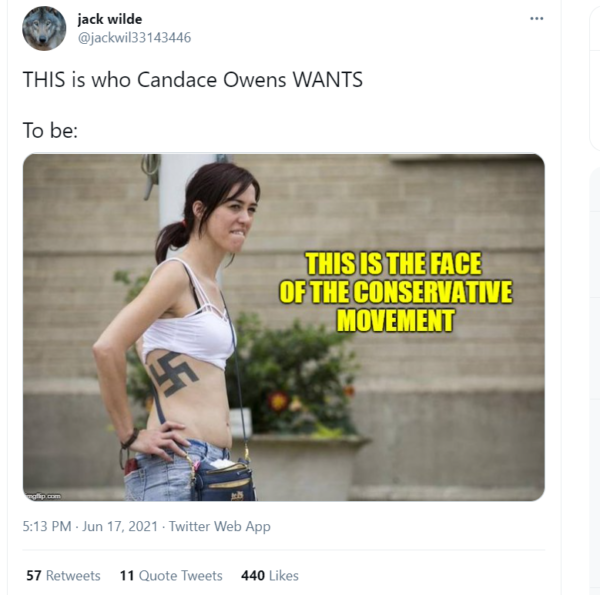
“What Candace Owens sees when she looks into a mirror,” one user wrote over a picture of conservative commentator Tomi Lahren.
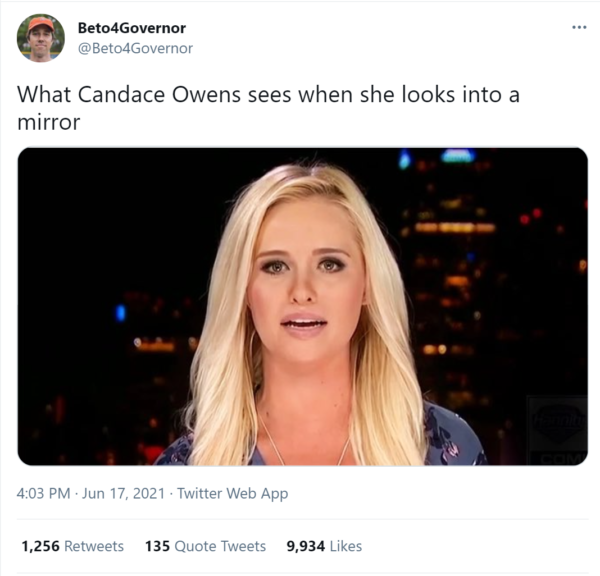
Another user concluded as Owens’ tweets rolled in that she would have been the person to turn Harriet Tubman in to the authorities.
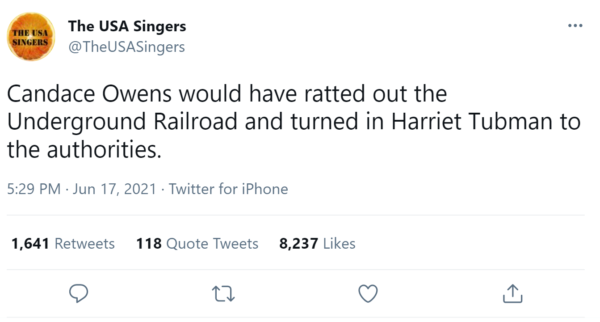
Although Juneteenth has only recently become a national holiday, nearly all states, and Washington, D.C., had already made the day a state holiday or observance.


